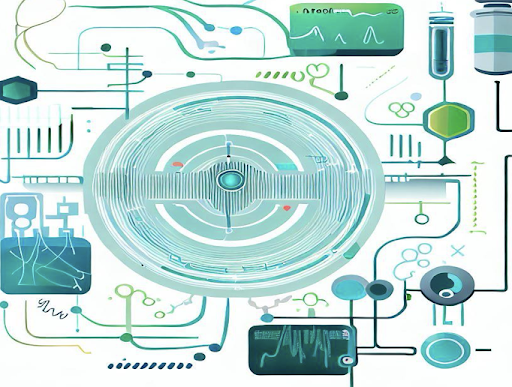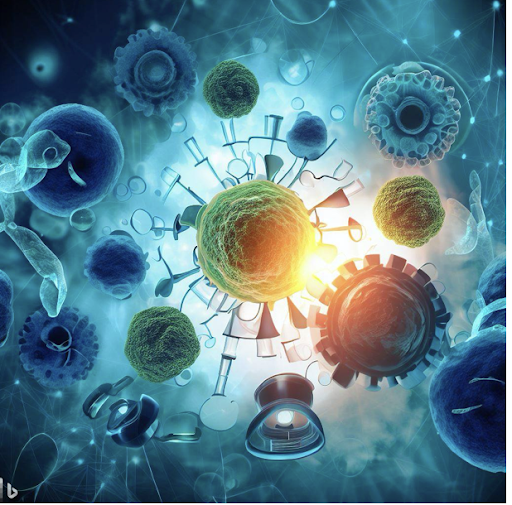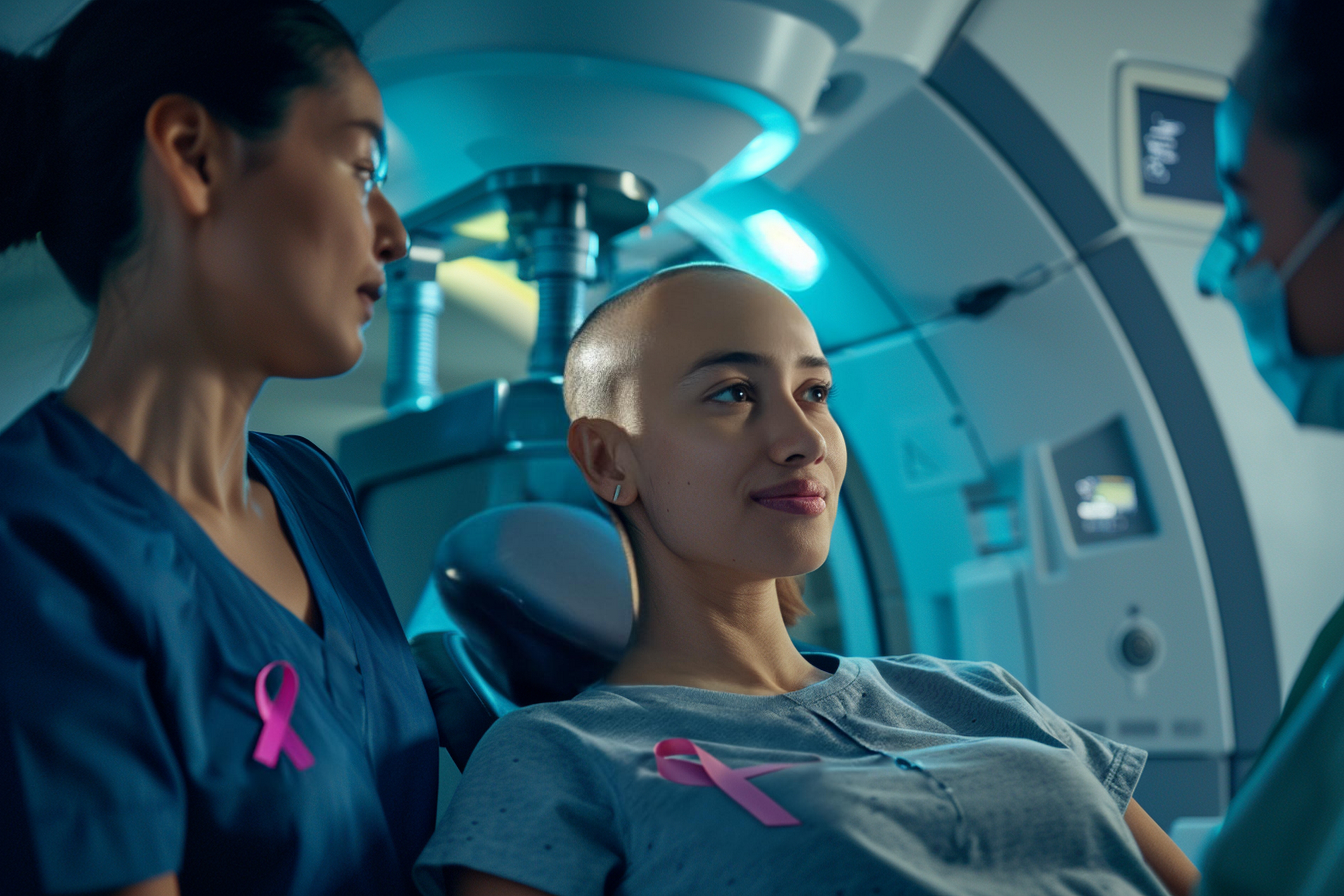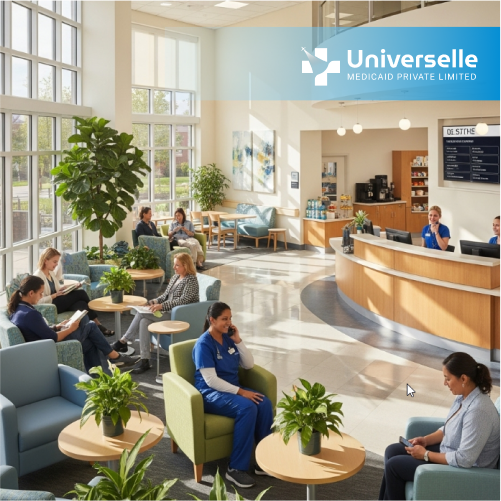What are the latest advances and innovations in cancer research and technology
Cancer is one of the most challenging and complex diseases that affects millions of people around the world. According to the World Health Organization (WHO), cancer is the second leading cause of death globally, accounting for an estimated 10 million deaths in 2020. In India, cancer is the third leading cause of death, with an estimated 2.6 million cases and 880,000 deaths in 2020.
However, there is also hope and progress in the fight against cancer. Thanks to the advances and innovations in cancer research and technology, we have gained more knowledge and understanding of cancer and its causes, risk factors, prevention methods, diagnosis techniques, treatment options, and survivorship issues. We have also developed new tools and strategies to improve the quality and effectiveness of cancer care and management.
In this blog post, we will explore some of the latest advances and innovations in cancer research and technology that are changing the future of medicine and making a difference in the lives of people who are affected by cancer.
Advances and innovations in cancer Prevention
Cancer prevention is the action taken to reduce the risk or chance of getting cancer or developing it further. It can include avoiding or reducing exposure to known or suspected carcinogens (cancer-causing agents), adopting healthy lifestyle habits, getting vaccinated against certain infections, or taking preventive medications.
Some of the latest advances and innovations in cancer prevention are:
-
Artificial intelligence (AI) for cancer screening:
AI is a branch of computer science that aims to create machines or systems that can perform tasks that normally require human intelligence, such as learning, reasoning, problem-solving, etc. AI can be used to enhance cancer screening by analyzing large amounts of data from various sources, such as medical records, images, tests, etc., and detecting patterns or anomalies that may indicate cancer or precancerous conditions. For example, Google has developed an AI system that can detect breast cancer from mammograms with higher accuracy than human radiologists. Similarly, IBM has developed an AI system that can detect cervical cancer from Pap smear images with higher accuracy than human pathologists.
-
Liquid biopsy for early detection:
Liquid biopsy is a non-invasive technique that involves analyzing a sample of blood or other body fluids for traces of tumor DNA or other biomarkers that may indicate cancer or its progression. Liquid biopsy can be used to detect cancer at an early stage, monitor its response to treatment, or predict its recurrence or metastasis. For example, GRAIL has developed a liquid biopsy test that can detect more than 50 types of cancer from a single blood draw with high specificity and sensitivity. Similarly, Guardant Health has developed a liquid biopsy test that can detect mutations in more than 70 genes associated with various types of cancer from a single blood draw.
-
Immunotherapy for cancer prevention:
Immunotherapy is a type of treatment that uses the body's own immune system to fight cancer or prevent it from developing. Immunotherapy can be used to prevent cancer by stimulating or enhancing the immune system's ability to recognize and destroy abnormal cells before they become malignant. For example, Merck has developed a vaccine called Gardasil that can prevent cervical cancer and other cancers caused by human papillomavirus (HPV) infection. Similarly, Roche has developed a drug called Tecentriq that can prevent non-small cell lung cancer (NSCLC) from recurring after surgery by boosting the immune system's response against residual tumor cells.

Advances and innovations in cancer Diagnosis
Cancer diagnosis is the process of finding out if a person has cancer or not, and if so, what type and stage it is. It can involve various tests and procedures, such as physical exams, biopsies, blood tests, imaging tests, genetic tests, etc.
Some of the latest advances and innovations in cancer diagnosis are:
-
Nanotechnology for cancer detection:
Nanotechnology is the science and engineering of manipulating matter at the nanoscale (1-100 nanometers), which is about 1000 times smaller than a human hair. Nanotechnology can be used to enhance cancer detection by creating nanomaterials or nanodevices that can interact with tumor cells or biomarkers and produce signals or responses that can be measured or observed. For example, MIT has developed a nanosensor that can detect ovarian cancer from urine samples by using gold nanoparticles that bind to tumor DNA and emit fluorescent light. Similarly, Stanford has developed a nanodevice that can detect colorectal cancer from stool samples by using magnetic nanoparticles that bind to tumor DNA and generate electric currents.
-
Machine learning for cancer diagnosis:
Machine learning is a subset of AI that focuses on creating systems or algorithms that can learn from data and improve their performance without explicit programming. Machine learning can be used to enhance cancer diagnosis by analyzing large and complex data sets from various sources, such as medical records, images, tests, etc., and finding patterns or associations that can help diagnose cancer or predict its outcomes. For example, Microsoft has developed a machine learning system that can diagnose leukemia from blood samples by using deep neural networks that can classify different types of white blood cells. Similarly, IBM has developed a machine learning system that can diagnose melanoma from skin images by using convolutional neural networks that can identify different features of skin lesions.
-
Biosensors for cancer diagnosis:
Biosensors are devices that can detect the presence or concentration of a biological substance, such as a molecule, cell, or organism, by converting it into an electrical signal. Biosensors can be used to enhance cancer diagnosis by measuring various biomarkers that may indicate cancer or its progression, such as proteins, hormones, metabolites, etc. For example, Johns Hopkins has developed a biosensor that can diagnose pancreatic cancer from saliva samples by using carbon nanotubes that can sense the level of a protein called CA19-9. Similarly, UCLA has developed a biosensor that can diagnose prostate cancer from urine samples by using graphene nanoribbons that can sense the level of a protein called PSA.

Advances and innovations in cancer Treatment
Cancer treatment is the use of various methods or modalities to cure or control cancer or its symptoms. It can include surgery, radiation therapy, chemotherapy, immunotherapy, targeted therapy, hormone therapy, stem cell transplant, etc.
Some of the latest advances and innovations in cancer treatment are:
-
Gene therapy for cancer treatment:
Gene therapy is a type of treatment that involves introducing or modifying genes in the cells of a person to treat or prevent a disease. Gene therapy can be used to treat cancer by correcting or replacing defective or mutated genes that cause or contribute to cancer development or progression. For example, Novartis has developed a gene therapy called Kymriah that can treat acute lymphoblastic leukemia (ALL) by using modified T cells (a type of immune cell) that can recognize and kill tumor cells. Similarly, Spark Therapeutics has developed a gene therapy called Luxturna that can treat retinal dystrophy (a type of eye cancer) by using modified viruses that can deliver healthy genes to the retina.
-
Nanomedicine for cancer treatment:
Nanomedicine is the application of nanotechnology to medicine. It involves using nanomaterials or nanodevices to diagnose, treat, or prevent diseases. Nanomedicine can be used to treat cancer by delivering drugs or other agents to the tumor site with high precision and efficiency, reducing side effects and toxicity. For example, BIND Therapeutics has developed a nanomedicine called BIND-014 that can treat prostate cancer by using nanoparticles that can target and deliver docetaxel (a chemotherapy drug) to tumor cells. Similarly, Nanobiotix has developed a nanomedicine called NBTXR3 that can treat soft tissue sarcoma by using nanoparticles that can enhance the effect of radiation therapy on tumor cells.
-
Immunotherapy for cancer treatment:
Immunotherapy is a type of treatment that uses the body's own immune system to fight cancer or enhance its response to other treatments. Immunotherapy can be used to treat cancer by stimulating or enhancing the immune system's ability to recognize and destroy tumor cells, blocking or inhibiting the immune system's checkpoints or brakes that prevent it from attacking tumor cells, or introducing or modifying immune cells that can target and kill tumor cells. For example, Bristol-Myers Squibb has developed an immunotherapy called Opdivo that can treat various types of cancer by blocking PD-1 (a checkpoint protein) that prevents T cells (a type of immune cell) from attacking tumor cells. Similarly, Kite Pharma has developed an immunotherapy called Yescarta that can treat non-Hodgkin lymphoma by using modified T cells (a type of immune cell) that can recognize and kill tumor cells.

Advances and innovations in cancer Survivorship
Digital health is the use of information and communication technologies to improve health outcomes, quality of care, and access to services. Digital health can be used to enhance cancer survivorship by providing various tools and platforms that can help cancer survivors monitor their health status, manage their symptoms, access support resources, communicate with their care team, etc. For example, Livongo has developed a digital health platform that can help cancer survivors manage their chronic conditions such as diabetes, hypertension, etc. by providing personalized insights, coaching, and feedback. Similarly, CancerAid has developed a digital health platform that can help cancer survivors navigate their cancer journey by providing information, education, tracking, coaching, and community.
-
Digital health for cancer survivorship:
Digital health is the use of information and communication technologies to improve health outcomes, quality of care, and access to services. Digital health can be used to enhance cancer survivorship by providing various tools and platforms that can help cancer survivors monitor their health status, manage their symptoms, access support resources, communicate with their care team, etc. For example, Livongo has developed a digital health platform that can help cancer survivors manage their chronic conditions such as diabetes, hypertension, etc. by providing personalized insights, coaching, and feedback. Similarly, CancerAid has developed a digital health platform that can help cancer survivors navigate their cancer journey by providing information, education, tracking, coaching, and community.
-
Precision medicine for cancer survivorship:
Precision medicine is an approach that tailors medical care to the individual characteristics of each patient, such as their genes, environment, lifestyle, etc. Precision medicine can be used to enhance cancer survivorship by providing personalized and targeted interventions that can prevent or treat cancer recurrence or metastasis, reduce side effects or complications, improve quality of life or survival outcomes, etc. For example, Foundation Medicine has developed a precision medicine test that can analyze the genomic profile of tumor tissue or blood samples and identify the best treatment options for each patient based on their unique molecular signature. Similarly, Tempus has developed a precision medicine platform that can integrate genomic data with clinical data and provide actionable insights for each patient based on their specific cancer type and stage.
-
Psycho-oncology for cancer survivorship:
Psycho-oncology is a branch of psychology that focuses on the psychological aspects of cancer diagnosis, treatment, and survivorship. Psycho-oncology can be used to enhance cancer survivorship by providing various interventions that can help cancer survivors cope with the emotional, cognitive, behavioral, and social challenges of living with or after cancer. For example, Mindfulness-Based Stress Reduction (MBSR) is a psycho-oncology intervention that can help cancer survivors reduce stress, anxiety, depression, and pain by teaching them mindfulness skills such as meditation, breathing exercises, and body awareness. Similarly, Cognitive Behavioral Therapy (CBT) is a psycho-oncology intervention that can help cancer survivors change negative thoughts, feelings, and behaviors that may interfere with their recovery or well-being by teaching them cognitive strategies such as problem-solving, goal-setting, and positive thinking.
CONCLUSION
Cancer is a serious and complex disease that affects millions of people around the world. However, there is also hope and progress in the fight against cancer. Thanks to the advances and innovations in cancer research and technology, we have made significant strides in preventing, detecting, treating, and surviving cancer.
In this blog post, we have explored some of the latest advances and innovations in cancer research and technology that are changing the future of medicine and making a difference in the lives of people who are affected by cancer. We hope that this blog post has been informative and helpful for you.
If you have any questions or comments about this blog post or any other topic related to cancer research and technology, please feel free to contact us. We are Universelle Medicaid, a company that provides comprehensive oncology services in India. We are passionate about improving the quality and effectiveness of cancer care and management in India. We offer various services such as screening tests, diagnostic tests, treatment options, clinical trials, support groups, etc. We also conduct research and innovation on various aspects of cancer research and technology. We are always happy to hear from you and help you with your cancer needs.
Thank you for reading this blog post. We hope that you have learned something new and useful. Please share this blog post with your friends and family who may be interested in this topic. Please also subscribe to our newsletter or follow us on our social media channels to stay updated on our latest news, research, and innovation. Together, we can make a difference in the fight against cancer.




